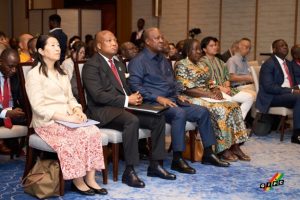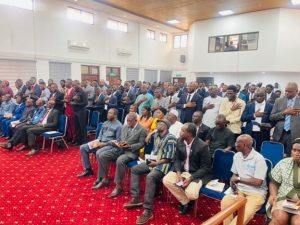
By Prince Kojo Tabiri, Esq.
“Conflict is inevitable, but combat is optional.” – Max Lucado
As the African Continental Free Trade Area (AfCFTA) progresses from policy to practice, one challenge looms: how will commercial disputes arising from cross-border trade be resolved efficiently, fairly, and in a way that integrates both global standards and local realities?
While arbitration has dominated Africa’s formal dispute resolution landscape in recent years, mediation offers a more culturally intuitive and economically efficient alternative yet remains structurally sidelined in many jurisdictions.
Cross-border trade disputes in Africa often suffer from jurisdictional ambiguity, weak enforcement mechanisms, and procedural delays.
Arbitration offers neutrality and finality but can be expensive, adversarial, and legally dense for small and medium-sized enterprises (SMEs), which constitute a significant portion of intra-African trade actors. Mediation, on the other hand, is faster, more flexible, and particularly well-suited to preserving commercial relationships.
Far from being an import, mediation resonates deeply with African customary dispute resolution. In Ghana, for instance, community-based mechanisms led by chiefs, elders, or family heads have long emphasized conciliation over confrontation (Nolan-Haley, 2015).
These systems mirror the collaborative spirit of modern mediation but lack the institutional and legal scaffolding necessary for application in high-value cross-border transactions.
Despite its potential, mediation remains underutilized. Africa has yet to institutionalize mediation into the core design of its regional trade regimes. About twenty years after it adopted the Uniform Act on Arbitration (UAA), the Organization for the Harmonization of Business Law in Africa (OHADA) revised its UAA and adopted a new Uniform Act on Mediation (UAM), along with a fresh set of arbitration rules of the Common Court of Justice and Arbitration in Abidjan.
While OHADA’s Uniform Act on Arbitration touches lightly on amicable settlement, and AfCFTA’s Protocol on Dispute Settlement includes consultations, these frameworks stop short of making mediation a primary mechanism. There is also the issue of enforceability: very few African countries have ratified the Singapore Convention on Mediation, which facilitates cross-border enforcement of mediated settlement agreements (UNCITRAL, 2019).
Beyond legal frameworks, the barriers to uptake include a lack of awareness, inconsistent standards, and limited institutional capacity (Nolan-Haley, 2015). Furthermore, in high-stakes commercial disputes, businesses often view mediation as soft or informal, a perception reinforced by the absence of clear enforcement and professional mediators with sector-specific knowledge.
The broader literature on mediation in cross-border political and diplomatic contexts further supports its relevance. Mediation, when deployed early, has been shown to reduce the likelihood of escalation and promote sustainable resolution through neutral facilitation and preserved relationships (Khan & Qureshi, 2022). These same principles are transferable to trade and commercial contexts, where long-term partnerships, reputational interests, and geopolitical sensitivities often intersect.
International economic integration relies heavily on dispute settlement procedures. An active, independent, efficient, and reliable Dispute Settlement Mechanism is vital not only for resolving disputes between state parties to maintain a rules-based regime, but also for generating relevant jurisprudence to guide the constituent trade agreement’s single market economy purpose.
Strategic Pathways Forward
To integrate mediation meaningfully into Africa’s cross-border trade architecture, the following measures are necessary:
- Institutional Integration
Mediation must be formally recognized in AfCFTA’s dispute settlement architecture. This can be modeled on international examples where mediation is a mandatory precondition to arbitration or litigation.
Mediation’s flexibility is one of its key strengths. Parties can design their process, address both legal and non-legal issues, and craft solutions tailored to their needs. This adaptability often makes mediation faster and less resource-intensive than adjudication, while also preserving business relationships.
- Legal Harmonization and Enforcement
African states should ratify and implement the Singapore Convention, which would improve the enforceability and legitimacy of mediated agreements across borders.
The United Nations Convention on International Settlement Agreements Resulting from Mediation, commonly known as the Singapore Convention on Mediation, applies to international settlement agreements resulting from mediation that are concluded by parties to resolve commercial disputes. It provides a uniform and efficient framework for such agreements, akin to the New York Convention for arbitral awards (UNCITRAL, 2019).
Designed to facilitate international trade and promote mediation as a credible dispute resolution tool, the Singapore Convention ensures that mediated settlements are binding and enforceable through a streamlined procedure. This not only strengthens access to justice but also reinforces the rule of law in cross-border commercial dealings.
- Capacity-Building and Accreditation
Regional mediation centers must be equipped, and practitioners trained with a focus on cross-cultural negotiation, commercial awareness, and legal enforceability. Mediation should be presented not merely as a tool for dispute avoidance but as a pillar of access to justice, particularly for SMEs, informal traders, and vulnerable commercial actors (Nolan-Haley, 2015).
If African economic integration is to succeed beyond headlines and protocols, its dispute resolution systems must be both credible and accessible. Mediation, rooted in African legal traditions and endorsed by international best practices, offers precisely this bridge between law and culture, between enforcement and understanding. It is time for Africa to move mediation from the margins of traditional practice to the heart of cross-border trade.
policy.Reference:
– Khan, S. & Qureshi, S. (2022). Diplomacy in Crisis: The Role of Mediation in Resolving Cross-Border Conflicts. ResearchGate.
– Jacqueline Nolan-Haley, Mediation and Access to Justice in Africa: Perspectives from Ghana, 21 Harv. Negot. L. Rev. 59 (2015) Available at: https://ir.lawnet.fordham.edu/faculty_scholarship/1251
– UNCITRAL (2019). United Nations Convention on International Settlement Agreements Resulting from Mediation (Singapore Convention on Mediation).
Disclaimer: The views expressed in this article are solely those of the author and do not necessarily reflect the positions of any institution, organization, or entity with which the author is affiliated. This article is intended for general informational purposes and does not constitute legal advice
The post Integrating mediation into cross-border trade disputes: The Africa Focus appeared first on The Business & Financial Times.
Read Full Story

















Facebook
Twitter
Pinterest
Instagram
Google+
YouTube
LinkedIn
RSS